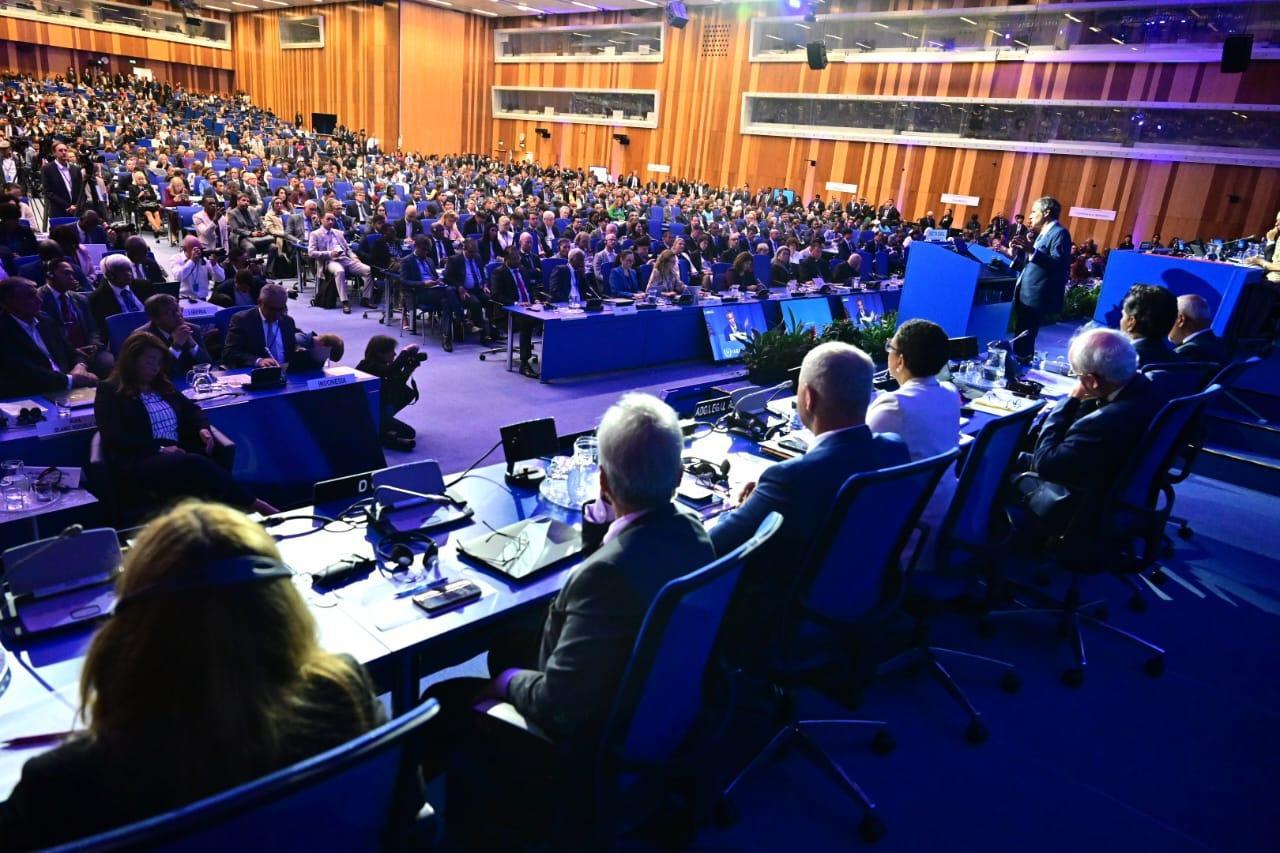Africa-Press – Kenya. Kenya has reaffirmed its commitment to leveraging nuclear science and technology for sustainable development, with plans to commence construction of its first nuclear power plant by 2027 and achieve grid connection by 2034.
The announcement was made by Science, Research and Innovation Principal Secretary Abdulrazak Shaukat at the 69th Regular Session of the General Conference of the International Atomic Energy Agency (IAEA) in Vienna, Austria.
Shaukat emphasised that nuclear energy will play a critical role in meeting Kenya’s growing energy demand, supporting climate action, and delivering on the country’s long-term development blueprint, Vision 2030, and the Bottom-Up Economic Transformation Agenda.
“Guided by the IAEA’s Milestones Approach and international best practices, Kenya is progressing steadily in the development of its national nuclear power programme,” he stated.
“The issuance of a Request for Information (RFI) to nuclear technology vendors in July 2025 was a key milestone as we seek a suitable partner for the project.”
He noted that the partnership with the IAEA has already borne tangible benefits, including the successful hosting of the inaugural IAEA Small Modular Reactor (SMR) School in Nairobi in May 2025, a first for Africa and a sign of Kenya’s rising leadership in innovative nuclear solutions.
Kenya plans to establish a Nuclear Research Reactor to enhance research, training, and development.
Beyond energy, Kenya has made remarkable strides in using nuclear technology to address public health challenges.
Through the IAEA’s Rays of Hope initiative, the government has established two regional cancer centres in Nakuru and Mombasa, which treated over 5,000 patients with radiotherapy in the past year alone.
“Cancer continues to claim over 29,000 lives out of the 44, 000 new cases recorded annually in Kenya, and the support of the IAEA has been instrumental in expanding access to sustainable, life-saving radiotherapy services,” Shaukat noted.
In agriculture, Kenya is benefiting from the IAEA’s Atoms4Food initiative, which has improved food security by boosting yields, reducing fertilizer costs, and strengthening climate resilience.
Innovations like new forage grass varieties and isotopic techniques have increased smallholder productivity by up to 20 percent.
Shaukat added that Kenya is strengthening its nuclear infrastructure and safety frameworks.
US Secretary of Energy Chris Wright has a word with NuPEA CEO Justus Wabuyabo at the IAEA General Conference in Vienna on September 16, 2025/COURTESYHe said the government has enacted the Nuclear Regulatory Act to align with global standards and is preparing for an Integrated Regulatory Review Service (IRRS) mission in October 2025.
The Kenya Nuclear Regulatory Authority (KNRA) has been designated as a Regional Centre for Education and Training in Radiation Protection, training fellows from across East Africa.
He noted that Kenya’s recent admission to the IAEA Regulatory Cooperation Forum (RCF) has deepened the engagement in multilateral collaboration and peer-to-peer learning in areas such as site evaluation, licensing, and infrastructure development
In the water sector, Kenya has successfully established a National Isotope Hydrology Laboratory with IAEA support, boosting national capacity in sustainable water resource management.
“Kenya remains steadfast in its commitment to the peaceful, safe, and secure use of nuclear science and technology,” Shaukat said.
He said they are in the final stages of ratifying key international conventions on nuclear safety, ensuring that our future nuclear installations adhere to the highest global safety benchmarks.
“We look forward to deepening our collaboration with the IAEA and fellow Member States for the benefit of humanity and future generations.”
The PS also revealed that Kenya aims to establish a Kenya Nuclear Energy Commission (KNEC) and a Regional Designated Centre for NDT, as he called for support from IAEA to ensure a robust, internationally compliant workforce in this field.
the process of establishing the Kenya Nuclear Energy Commission.
For More News And Analysis About Kenya Follow Africa-Press






